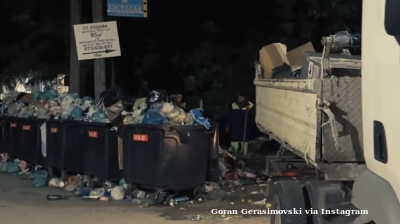China’s notorious “gutter oil” was once a source of food safety scandals, but has undergone a green revolution that has made it worth more than kerosene.
The waste cooking oil that was used in every household to make food used to be poured into the sewers, where it caused pollution and was the subject of complaints. The oil would accumulate in sewers and was also used illicitly in food production. Now it is one of China’s most sought-after commodities, as it can easily be turned into sustainable bio-aviation fuel.
The price of recycled gutter oil has surged as a result, and where there was a surplus there is now a deficit. The price of bio-aviation fuel has surpassed that of new palm oil and soybean oil, thanks to its status as a key ingredient in sustainable aviation fuel (SAF).
Aviation biofuel has sparked the newfound demand. Produced from used cooking oil, SAF can reduce carbon emissions by up to 85% compared to traditional jet fuel multiplying its appeal for airlines desperate to go green. Price of gutter oil has soared to over CNY8,000 ($1,100) per tonne – making it more valuable than many premium store-bought extra virgin olive oil .
China has become a leading player in the global SAF supply chain, exporting approximately 1.82mn tonnes per year (tpy) of used cooking oil. The US alone imported over 1.36mn tonnes from China last year, as SAF adoption accelerates in the aviation industry.
International interest is so intense that Chinese industry players are advocating for export restrictions to ensure sufficient domestic supplies. Domestic demand for SAF now far exceeds production capacity, forcing a reassessment of export priorities. Some exchanges are even exploring futures contracts for used cooking oil, highlighting its growing importance as a commodity.
Ironically, the shift in value has flipped concerns about product integrity. “Producers are now accused of ‘contaminating’ gutter oil with cheaper pure palm oil to improve margins,” China-watcher Arnaud Bertrand joked in a social media post, contrasting this with the past, when the gutter oil was seen as rubbish and something to get rid of.
This transformation of gutter oil from a problem into a solution is a successful case of sustainable problem-solving – putting waste to service for the betterment of the environment. Once a health hazard, it is now a strategic resource supporting global decarbonisation efforts.
China’s transition from managing gutter oil as a public health risk to exporting it as a high-value feedstock for aviation biofuel demonstrates how aligning economic incentives with sustainability goals and innovation can drive transformative change. As demand continues to grow, the humble gutter oil could play an even larger role in reducing aviation’s carbon footprint, provided the Chinese can be persuaded to eat more fried food.
bneGREEN

The Arctic and Antarctica record "off the charts" heat as polar warming accelerates
Parts of both the Arctic and Antarctic have experienced historically high temperatures in recent weeks, with weather stations in East Antarctica recording record-breaking warmth for the month of October, alarming climate scientists.

Singapore’s green pivot – headline grabbing but still limited
Forays into offshore wind via regional cooperation with neighbours, and forward-looking bets on hydrogen and low-carbon fuels are making headlines, but the scale required to wean a heavily gas-dependent system off fossil fuels is still daunting.

North Macedonia's Skopje tackles mounting waste and rodent crisis
Locals say the problems in Skopje's Centar municipality worsened during the local election period when political campaigning took precedence over maintenance.

Malaysia–Vietnam offshore wind project to deliver 2,000 MW by 2034, strengthening regional green energy links
Malaysia’s upcoming offshore wind project connecting Vietnam to Peninsular Malaysia is expected to generate up to 2,000 megawatts (MW) of clean energy by 2034, marking a major step in the nation’s renewable energy expansion



.jpg)
